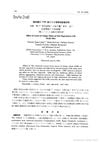Cosmeceuticals for Hair Loss and Hair Care
November 2013
minoxidil finasteride Hairmax Lasercomb polyphenols proanthocyanidins procyanidin B-2 isoflavones ginseng raspberry ketone saw palmetto green tea essential oils vitamin C derivatives amino acids natural hair coloring agents keratin-based peptide Cassia extracts honeydew extract eucalyptus Rogaine Propecia Lasercomb procyanidin soy isoflavones Panax ginseng saw palmetto extract green tea extract vitamin C keratin peptide Cassia honeydew eucalyptus oil

TLDR Some plant-based ingredients may help with hair growth and care, but more research is needed to confirm their effectiveness.
In 2013, the document reviewed the potential of plant-based cosmeceuticals in hair care and hair loss treatment, noting that at the time, only two FDA-approved medications (minoxidil and finasteride) and one medical device (Hairmax Lasercomb) were available for these conditions. It highlighted studies on polyphenols like proanthocyanidins, which in a clinical trial increased mean hair diameter in 78.9% of the 29 male subjects treated with a 1% procyanidin B-2 tonic. Other plant-derived substances such as isoflavones, ginseng, raspberry ketone, saw palmetto, and green tea were also discussed for their potential hair growth benefits. The document also covered the use of essential oils, vitamin C derivatives, amino acids, and natural hair coloring agents for hair care and protection. Additionally, it mentioned a keratin-based peptide, Cassia extracts, honeydew extract, and eucalyptus as beneficial for hair properties, with a particular study showing increased hair smoothness and reduced cuticle chipping. Despite these findings, the document emphasized the need for more research to confirm the efficacy of these ingredients in humans and expressed optimism for the future role of plant-based cosmeceuticals in the hair loss market.





